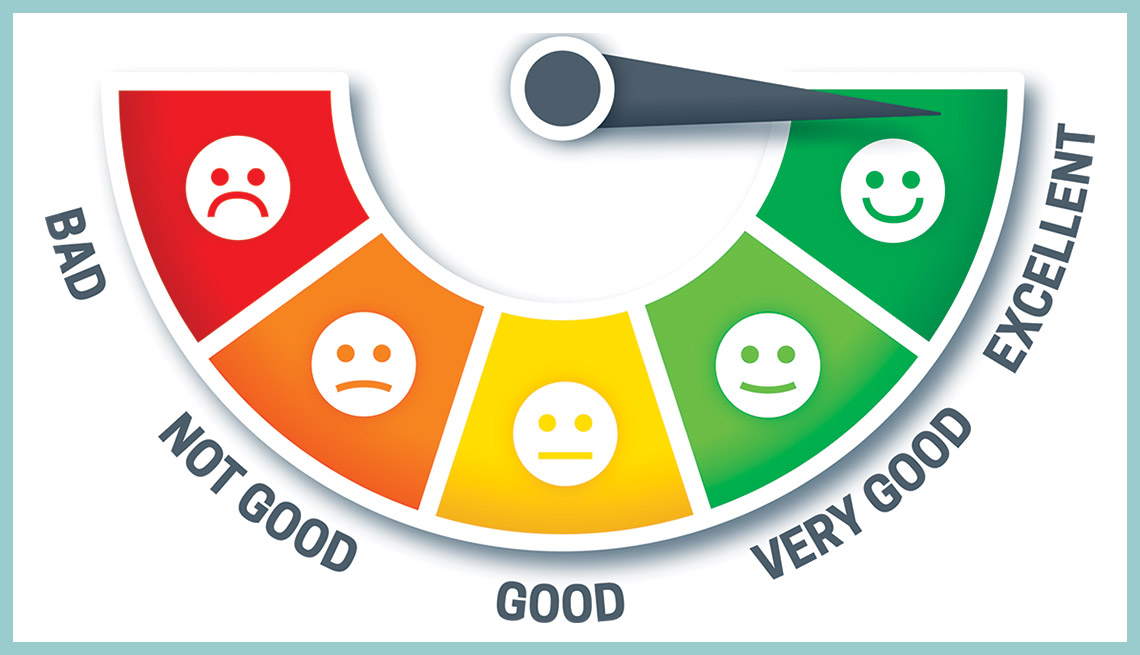Staying Fit
Your credit score plays a pivotal, if sometimes misunderstood, role in your financial life. The number can determine everything from whether you can get a store charge card to whether a landlord will rent to you. It can even influence whether you get hired for a job.
It's important to understand that your credit score is different than your credit report, though the two are intertwined. Your credit score boils down all of the information contained in your credit report to a number, typically between 300 and 850. The higher the score, the better your creditworthiness; the “good” range starts at 670. About 67 percent of Americans have a rating of good or better, according to credit bureau Experian.


AARP Membership— $12 for your first year when you sign up for Automatic Renewal
Get instant access to members-only products and hundreds of discounts, a free second membership, and a subscription to AARP the Magazine.
Many banks and credit card companies will give you your credit score for free, as will Experian. The most common credit scoring system is called FICO — an acronym for Fair, Isaac and Co., the company that created it — but other companies compute scores differently. If you look at scores from different sources that use the same range, they should all be in the same ballpark: Twenty-point differences are normal. If one score is dramatically worse than the others, it may spring from problems with your credit report.
Whether you pay your bills on time has the biggest influence on your credit score, but other factors come into play, too, including how much you owe and how far back your credit history goes. If your credit score needs some improvement, here are five ways to give it a boost.
1. Check your credit report.
Your credit report is a lengthy record of your dealings with credit of all sorts, and it's what is used to create your credit score. Three credit bureaus — Experian, TransUnion and Equifax — maintain credit reports that should contain similar information but won't be identical. Normally, you're entitled to get one free copy of your credit report from each credit bureau every year via AnnualCreditReport.com. During the pandemic, however, you can get free weekly online credit reports from the AnnualCreditReport.com website.
Top 5 factors for credit scores
- Payment history, 35 percent
- Amounts owed, 30 percent
- Credit history length, 15 percent
- Credit mix, 10 percent
- New credit, 10 percent
Source: Experian
You should get your credit report because if it's not accurate, your credit score could suffer. You can also check to ensure that someone hasn't stolen your identity. Check your personal information — name, address, phone number and Social Security number — to make sure it's all correct. Check your credit balances and credit limits, as well as whether payment information is accurate.



































































